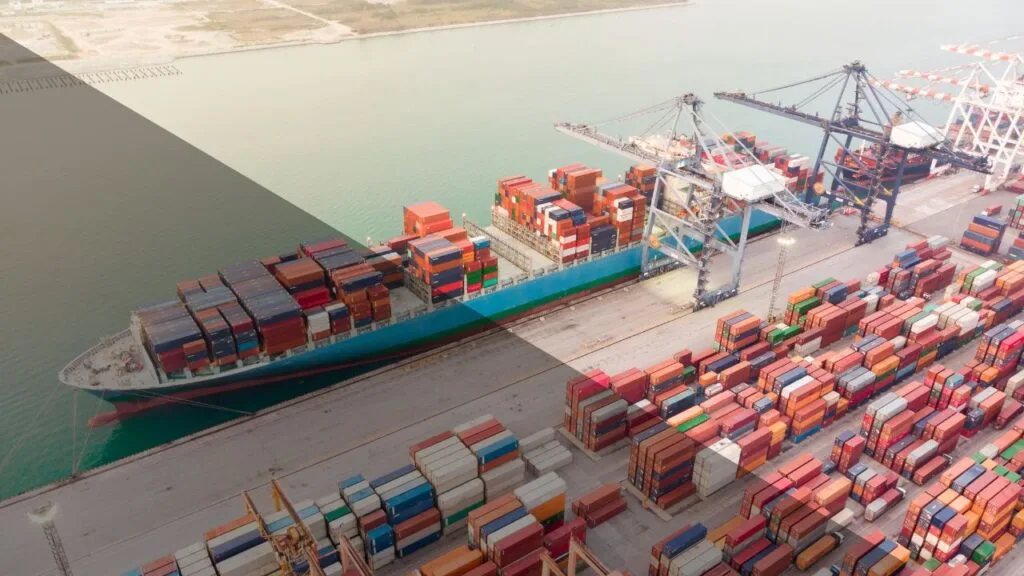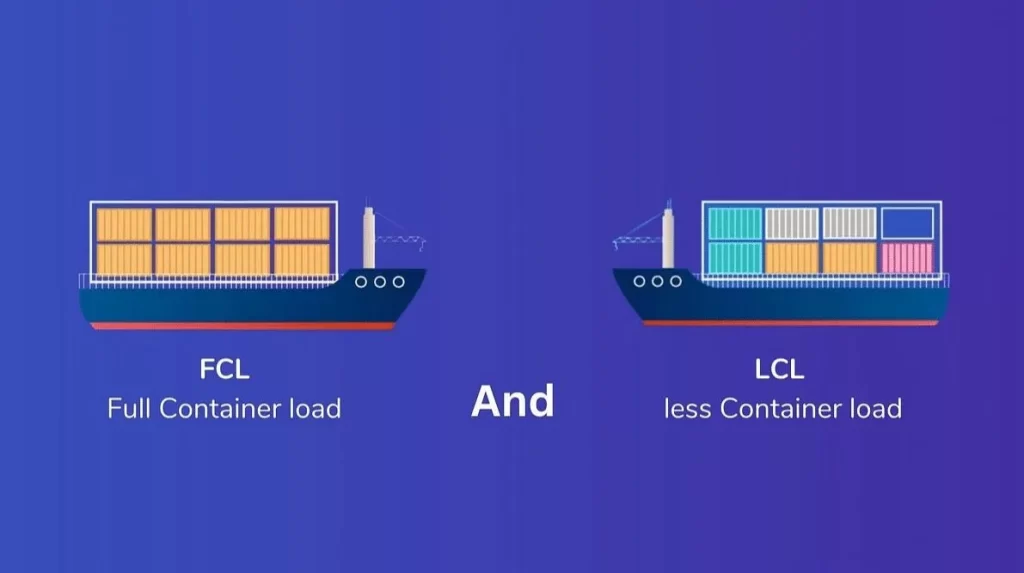- By TOP CHINA FREIGHT
- October 9, 2025
- Shipping
Table of Contents
Container shipping China to Singapore is a critical component of the global supply chain, providing businesses with a reliable, cost-effective, and scalable solution for importing and exporting goods. Companies can optimize costs, transit time, and delivery schedules by leveraging containerized shipments. In this comprehensive guide, we cover shipping methods, pricing, documentation, and best practices to streamline your logistics operations.

What Are the Key Benefits of Container Shipping from China?
Transport bulk goods, reducing per-unit shipping costs.
Sea freight has a smaller carbon footprint than air freight.
Standardized containers minimize damage during transit.
Ports have specialized equipment for container handling.
Regular sailings from Shanghai, Shenzhen, Ningbo, and Guangzhou help manage inventory and delivery timelines.
How Much Does Container Shipping from China to Singapore Cost?

Shipping costs depend on several factors, including container size, cargo type, and service level. Standard container options include 20ft and 40ft containers. Below is an estimated pricing table:
| Container Size | Estimated Cost (USD) | Typical Transit Time | Suitable Cargo Volume |
|---|---|---|---|
| 20ft Container | $1,200–$1,800 | 7–10 days | 28–30 CBM / 20 tons |
| 40ft Container | $2,000–$3,000 | 7–10 days | 58–60 CBM / 25–28 tons |
Costs may fluctuate depending on peak seasons, fuel surcharges, and port congestion. Using a reputable freight forwarder ensures competitive rates and reliable space allocation.
What Are the Best Shipping Methods from China to Singapore?
Choosing the right shipping method depends on your priorities: cost, speed, and cargo type. Below is a comparison of the main options:
| Shipping Method | Cost | Transit Time | Pros | Cons |
|---|---|---|---|---|
| Sea Freight | $$ | 7–10 days | Cost-effective, large volume | Slower than air |
| Air Freight | $$$$ | 2–4 days | Fast, reliable for urgent goods | Expensive, limited volume |
| Express Courier | $$$$ | 1–3 days | Door-to-door convenience | Very expensive, size restrictions |
For container shipments, sea freight is the most practical choice. Air freight is suitable for high-value or urgent goods but may not be cost-effective for bulk shipments.
Which Chinese Ports Offer the Best Shipping Routes to Singapore?
Singapore imports goods from multiple Chinese ports, each with unique advantages:
- Shanghai Port: High frequency, extensive shipping lines, suitable for large industrial goods.
- Shenzhen Port: Close to electronics manufacturing hubs, ideal for high-value goods.
- Ningbo Port: Efficient handling for bulk shipments, cost-effective.
- Guangzhou Port: Flexible schedules, ideal for mixed cargo and smaller shipments.
Selecting the right port can optimize transit times and reduce shipping costs. Freight forwarders often provide consolidated shipping options to combine shipments from multiple ports for efficiency.
How Long Is the Transit Time for Container Shipping?
Transit time varies based on port of origin, shipping line, and customs clearance. Typical sea freight from China to Singapore takes 7–10 days for full container loads. Using express or premium services may reduce delays, but standard transit times remain reliable for most businesses.
| Port of Origin | Estimated Transit Time |
|---|---|
| Shanghai | 7–9 days |
| Shenzhen | 7–10 days |
| Ningbo | 8–10 days |
| Guangzhou | 7–9 days |
Businesses should account for potential delays due to customs inspections, holidays, or weather disruptions.
What Customs Documents Are Needed for Container Shipping?

Proper documentation is essential to avoid delays or fines. The following table lists the most common documents required:
| Document | Purpose |
|---|---|
| Bill of Lading (B/L) | Proof of shipment ownership |
| Commercial Invoice | Details of cargo value and description |
| Packing List | Contents and packaging specifications |
| Certificate of Origin | Verifies origin for customs duties |
| Import License | Required for restricted goods |
| Insurance Certificate | Confirms cargo coverage during transit |
Ensuring accurate paperwork reduces clearance time and enhances compliance with Singaporean regulations.
How to Optimize Costs and Avoid Common Shipping Mistakes?
Smaller shipments can be grouped to maximize container space, lowering per-unit costs.
Avoid overpacking 20ft containers or underutilizing 40ft containers to balance cost efficiency.
Peak season surcharges and port congestion can significantly increase costs.
Experienced forwarders negotiate better rates and provide flexible solutions.
Proper classification of goods avoids penalties or delays.
Can You Track Your Container Shipping Online?
Most major carriers provide online tracking for container shipments. Real-time tracking allows businesses to monitor shipment location, estimated arrival, and potential delays. Tracking also helps coordinate warehouse scheduling and last-mile delivery.
| Carrier | Tracking Availability | Updates Frequency |
|---|---|---|
| COSCO | Online | Daily |
| OOCL | Online | Daily |
| Maersk | Online | Hourly |
| HMM | Online | Daily |
For businesses shipping high-value goods, digital tracking enhances security and transparency.
Should You Choose Full Container Load (FCL) or Less-than-Container Load (LCL)?

Case Study: Electronics Export from Shenzhen to Singapore

A mid-sized electronics company in Shenzhen needed to ship 20 tons of smartphones to Singapore. Using a 40ft container, they partnered with a freight forwarder to consolidate cargo, complete documentation, and book a regular shipping schedule.
- Transit Time: 9 days
- Cost: $2,200
- Outcome: On-time delivery with zero damage, streamlined customs clearance, and reduced per-unit shipping cost by 15%.
This example illustrates how proper planning, container selection, and forwarder expertise can optimize cost, transit time, and operational efficiency.
Conclusion
Container shipping from China to Singapore remains one of the most efficient methods for moving goods internationally. By understanding transit times, shipping methods, documentation requirements, and cost optimization techniques, businesses can streamline operations and reduce supply chain risk. Strategic planning, experienced freight forwarders, and proactive tracking further enhance shipping reliability and efficiency.
Need a Shipping Quote?
If you want expert guidance and peace of mind, our team is ready to assist.
TJ China Freight offers tailored solutions to help businesses of all sizes ship more reliably from China.

FAQ
Q1: What is the fastest way to ship from China to Singapore?
Air freight takes 2–4 days and is best for urgent or high-value goods. Express courier works for small parcels.
Q2: How do I calculate shipping costs for a container?
Costs depend on container size, cargo volume, weight, and fees. Forwarders can provide accurate quotes.
Q3: Can I ship hazardous goods in a container?
Yes, with proper labeling, packaging, and documentation. Inform your forwarder to ensure compliance.
Q4: How do I choose between FCL and LCL shipping?
FCL suits large shipments; LCL is for smaller loads. Consider volume, cost, and speed.
Q5: What happens if my shipment is delayed?
Delays may occur due to customs, weather, or port congestion. Tracking and insurance help manage risk.
